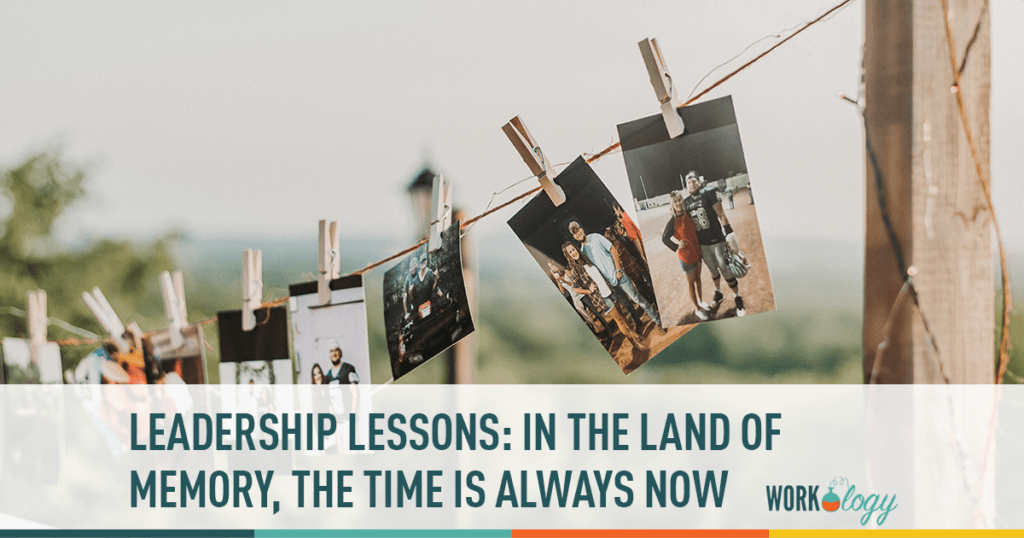Words and actions matter. For better or worse. That is a rather obvious principle, and I doubt many people would disagree with it. And they have a significant impact when leaders speak and act on them. They have the power to quickly change the direction of a team.
However, leaders are also people. They make errors. They occasionally exhibit rash behavior and say or do things that they later regret. Even though they strive for perfection, they occasionally fall short. It is a step in their professional development. Even though they might wish they could go back and change what we said or did, it’s just not possible.
Leadership Lessons: In the Land of Memory, the Time is Always Now
I’m an avid reader, and I read for pleasure as well as for professional growth. One of my favorite fiction authors is Stephen King. He has a way with words that I simply will never have. He can create beautiful landscapes and strong, profound feelings in a single sentence. I was reading a book of his the other day, and I was deeply impacted by this sentence:
In the land of memory, the time is always now.
I read that sentence. Then I re-read it. And then I re-read it about 10 more times. As far as I know, Stephen King has never been a manager or a boss. He’s not a “thought leader” of business or leadership. He’s a fiction writer. But in those 10 words, he managed to perfectly capture the power of words and actions.
Think back to a significant event in your own life. One that impacted you deeply. Let yourself return to that time, and let the event replay in your mind. At that very moment, is it today, or is it that day? In that moment, do you feel the way you felt at the moment before you recalled the memory? Or do you feel the way you felt that day? I think you’ll find that you’ve been transported emotionally back to that time.
So what’s the lesson to us as leaders? What are our takeaways? For me, there are 3.
Memories Stick
As leaders, there are times you would like nothing better than to forget a bad situation and move on. You’ve apologized, you’ve eaten your crow, and you’ve promised improvement. Time to pack it up and file it away. But that just isn’t the way it works. The memory of what was said or done remains in the minds and hearts of the people we lead. And those memories take a long, long time to fade. And depending on what was said or done, they may never fade. So don’t be too quick to forget and move on. Because I’d wager that your employees haven’t.
Think Quickly, Respond Slowly
Leaders need to resist the natural response to move quickly. It may seem like the clock is ticking, but consider the alternatives. Is it worse to take some extra time to consider something before responding, or to respond immediately and perhaps leave a scar that will stick in the person’s memory for years? When you feel under the gun, consider saying something like “I’d like to spend some time considering this situation. Can I get back to you?” Create “space” for yourself to calmly and deliberately process the situation. Especially when emotions are high. Don’t be afraid to call a time-out. It’s often a much-needed breather that will keep you or the other person from saying something in emotion that will be regretted in calm.
Your People Don’t Care About Your Burden
Leadership is hard? Yes. Leadership is taxing? Yes. Sometimes leadership isn’t much fun? Yes. But your employees don’t care about your struggle. Don’t count on them giving you the benefit of the doubt if (or when) you screw up. They probably won’t. They don’t care about the mountain of paperwork on your desk, or the 3-hour marathon meeting you just came out of 5 minutes ago. They care about how you made them feel right now.
The Key Takeaway: Words and Actions Matter
I’ll wrap this topic with a quote probably more of you are familiar with:
People will forget what you said, people will forget what you did, but people will never forget how you made them feel. –Maya Angelou








